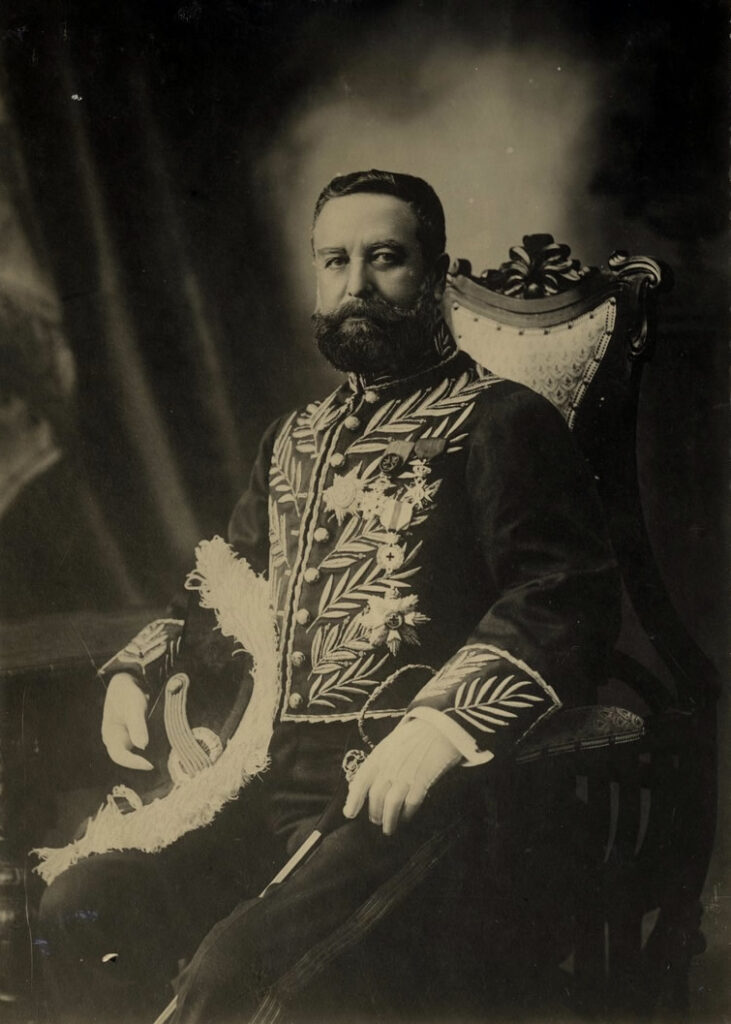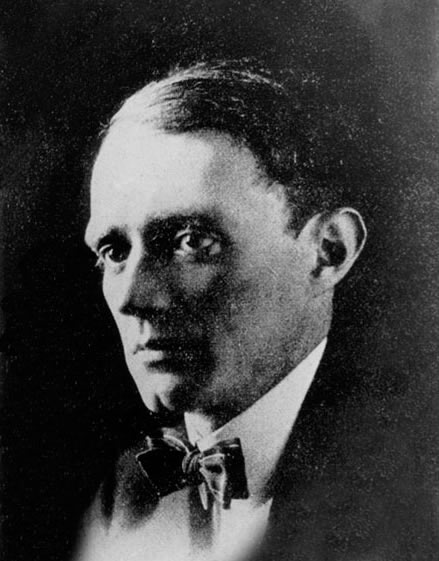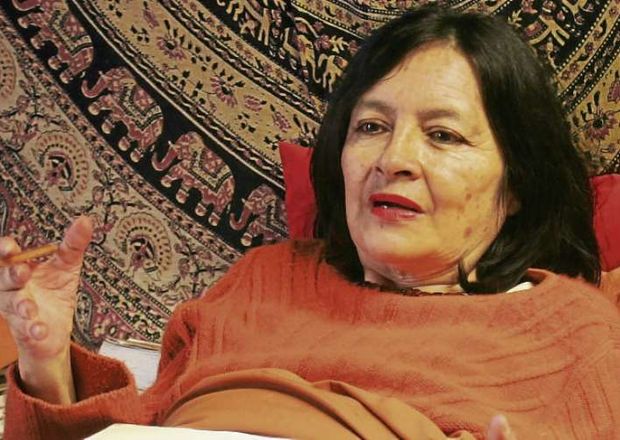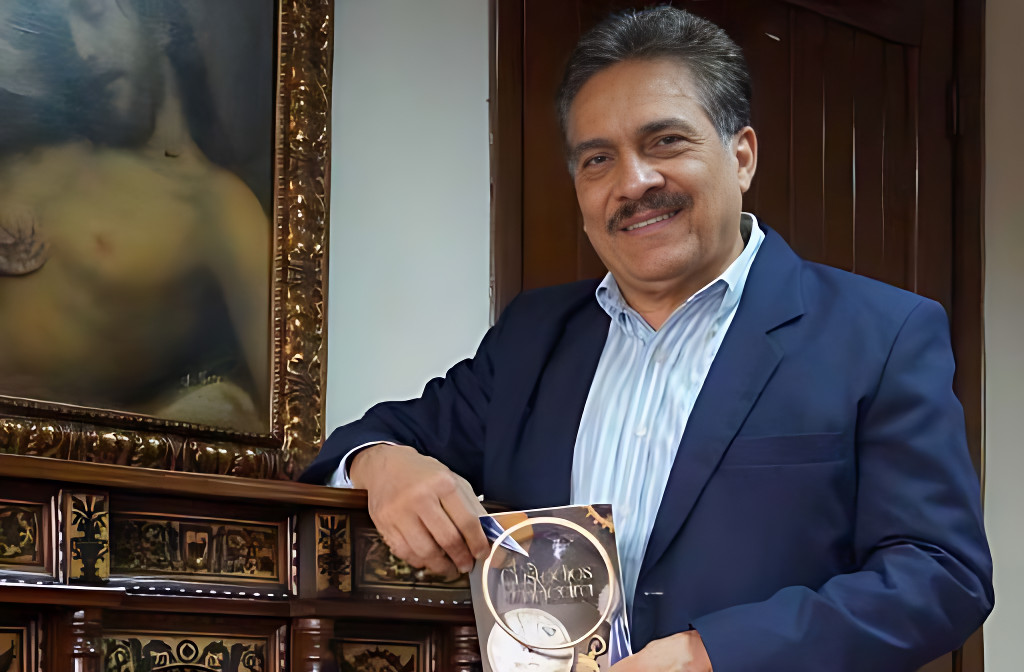José Peralta Serrano (Chaupi-Yunga, Gualleturo, present day Cañar, 1855 – Quito, December 27, 1937) was an Ecuadorian lawyer, politician, diplomat, educator, writer and journalist who founded several liberal journals in the 19th and early 20th century. He is considered the greatest ideologue of the Liberal Revolution. His works, such as “¿Ineptitud o traición?” (1904), “Tipos de mi Tierra” (1910), “El régimen liberal y el régimen conservador juzgados por sus obras” (1911), and “Eloy Alfaro y sus victimarios” (1951) are an invaluable part of Ecuadorian literature’s heritage. He was an ally of Eloy Alfaro (President of Ecuador from 1895 to 1901 and from 1906 to 1911) and held various diplomatic and public posts during Alfaro’s rule. He was one of the drafters of the 1906 constitution. He was proposed by Alfaro as a candidate to succeed him as president of the republic, which he declined in order to avoid violence from conservatives factions.
Family
He was born to priest Dr. José Serrano and Joaquina Peralta in Chaupi-Yunga, of the parish of Gualleturo, present province of Cañar, then belonging to the province of Azuay.
Education
After attending a Jesuit school in Cuenca, he went on to study law at the university there, earning the degree of Doctor of Jurisprudence. However, the Superior Court of Justice rejected his application to join the Bar Association on the grounds that he had abandoned his original political beliefs and become a “apostate and turncoat.” Faced with this situation, he went to the Superior Court of Justice of Loja, whose members, appreciating his obvious brilliance, welcomed him into the College of that District and immediately made him a member of the Lawyers Corps of the Courts of the Republic.
Politics
Identifying from a very young age with the avant-garde ideas that had begun to germinate since the beginning of the 19th century, he founded the Liberal Party in the province of Azuay at a time and place where advocating liberal ideals meant exposing oneself to all kinds of attacks and insults. Despite this, he wrote numerous essays and books defending his political beliefs, laying the groundwork for the success of the Liberal Revolution on June 5, 1895.
Journals he founded
To propagate and defend his ideas, he founded several newspapers such as:
- El Escalpelo (1877)
- La Libertad» (1888)
- La Verdad (1889)
- La Razón (1889)
- La Epoca (1889)
- La Tribuna (1891)
- El Observador (1891)
- La Regeneración (1895)
- El Atalaya (1895)
- El Revenque (1896)
- Boletín Oficial (1896)
- El Independiente (1902)
- El Popular (1912)
Through these publications he fought for his principles with courage, purity and vehemence. This caused him to be the victim of multiple and violent attacks by his detractors, among them the most notorious was the one carried out against him by His Excellency Federico González Suárez, who, inspired by the pernicious Jesuit doctrines of that time, tried to discredit him, even accusing him of imitating and plagiarizing Juan Montalvo.
Career in education
He was Rector of the San Luis de Cuenca School, Professor of Political Science and Rector of the University of Azuay.
Political life
Triumphant the Liberal Revolution that brought Eloy Alfaro to power, he attended various assemblies and congresses as a Senator and Deputy where he made his valuable voice heard holding wise and eloquent verbal duels with his political opponents, since the liberal reforms stumbled not only with the closed and stubborn resistance of the declared conservative legislators in the opposition, but also with the cunning discretion of the “prudent liberals” who insisted on obstructing the work of those whom they called “machete liberals.” Peralta was one of the most brilliant liberal legislators, and acting as Deputy in the Convention of 1906, he was the one who drafted the Draft Constitution that was issued that same year.
Before the end of 1906, he was accused of having ordered the death of the “Caudillo del Azuay,” General Antonio Vega Muñoz, an accusation that he always rejected, since the murder was not part of the liberal ideology of Alfarista and even less of a man of his moral quality
His talent shone not only in the forum but also in the performance of important public positions. He was Minister of Foreign Affairs, Justice, Public Instruction and Finance. In 1910 he was appointed Chancellor of the Republic.
As a diplomat, he attended the Bolivarian congresses in Caracas and Lima, where, proving to be a great idealist and an eminent thinker, he earned the admiration and respect of all the congressmen.
Eloy Alfaro proposed Peralta’s candidacy for next president of the republic because he thought he was the best person to carry on the huge work of the Revolution. However, he turned down the honor to prevent the conservative opposition from becoming even more violent.
Awards and recognitions
His distinction and talent had been decorated with the “Legion of Honor,” the “Academic Palms,” “The Bust of the Liberator,” “The Crown of Italy,” “The Cross of Malta,” “The Order of Elizabeth the Catholic,” that of “Civil Merit” and many more.
Selected works
- Chumbera, leyenda original (1876) – read it for free here.
- Soledad (1885)
- Casus belli del clero azuayo (1898)
- La cuestión religiosa y el poder público en el Ecuador (1901)
- ¿Ineptitud o traición? (1904)
- Porrazos a Porrillo (1905)
- La venta del territorio y los peculados (1906)
- Documentos diplomáticos relativos al conflicto actual con el Perú (1910)
- Tipos de mi Tierra (1910)
- El régimen liberal y el régimen conservador juzgados por sus obras (1911, Quito, Ecuador : Tip. de la Escuela de Artes y Oficios.) – Read it for free here.
- Compte rendu (1920)
- Para la Historia (1920)
- Una plumada más: sobre el protocolo Ponce-Castro Oyanguren (1924, Cuenca: Impreso por Manuel J. Vintimilla) – Read it for free here.
- Breve exposición histórico-jurídica de nuestra controversia de límites con el Perú (1925)
- El Monaquismo (1931)
- Eloy Alfaro y sus victimarios (1951)
- La esclavitud de la América Latina (1961)
- Ensayos filosóficos (1961)
- Teorías del Universo (1967)
- La moral teológica (2 volumes, 1974)
- La naturaleza ante la teología y la ciencia (1974)
- Años de lucha (3 tomos, 1974-1976)
- La controversia limítrofe: un enfoque histórico (1995)
- Mis memorias políticas (1995)
- Lecciones sobre Historia Universal del Derecho (2003)
- Lecciones de Derecho Penal (2005)
- Raza de víboras (2005)



